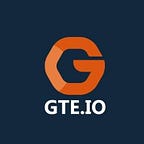Moving Markets In Crypto And Digital Assets: The OECD Blockchain Policy Forum
Article by Forbes: Lawrence Wintermeyer
Last week the Organisation for Economic Co-operation and Development (OECD) convened it second annual Global Blockchain Policy Forum in Paris. Over 1,500 attendees descended on the OECD headquarters including politicians, central bankers, policy makers, regulators, industry associations, non-governmental organizations, and industry leaders.
The conference, held over two days, had a “cross-cutting” perspective and considered the impact of Distributed Ledger Technology (DLT) on issues such as financial and capital markets, supply chains, responsible business conduct, competition, infrastructure, public administration, tax, data privacy and more!
With more than a dozen plenary sessions and twenty-five deep dive breakouts, leaders from across the global landscape, and a range of opportunities to meet and greet all of the delegates, this is the Forum to attend to rub shoulders with the market movers and shakers, whether you are buying or selling virtual wares, policy, intellectual capital or digital infrastructure.
It is the preeminent global conference for anyone seeking to influence policy makers in the digital asset and blockchain space, full stop.
The forum is the brainchild of former securities regulator Greg Medcraft, the OECD Director for Financial and Enterprise Affairs. Having first convened the global digital assets and policy making community a couple of years ago, his team focused on the greater global social and economic purpose of blockchain and distributed ledger technologies and the need for cooperation and standards in this nascent space, and the forum was born.
Greg is a big supporter of greater cooperation between industry players and their respective associations in supporting policy makers to navigate the often deeply technical and globally fragmented policy and regulatory world of crypto and digital assets.
“Blockchain is a technology which knows no borders, so it is really important that we maintain a global perspective on its policy implications.
While countries need to adapt to their individual circumstances, those approaches need a level of consistency and to reflect international developments, which is what the OECD brings to this discussion.
It’s also why I’m so excited to see more than 60 jurisdictions represented from right across the world at this year’s event,” says Medcraft.
Medcraft adds, “Finance Minister Le Maire had some strong words on the mass-adoption of stablecoins like Libra. While the future of Libra remains to be seen, it has already launched international discussions on central bank digital currencies at the highest levels, and even the idea of a single global digital currency as recently posited by Mark Carney at Jackson Hole.
Our session on this topic with Central Bank Governors was fascinating and only deepened the OECD’s commitment to helping assess the full policy implications of stable coins as well as tokenization more generally.”
Caroline Malcolm, Head of the Blockchain Policy Centre runs the Forum with the support of her colleague Elodie Pierre and a crack OECD content team. What an impressive job the team has done in just two years to firmly plant the blockchain policy flag on the hallowed OECD grounds and open it up to open global cooperation and collaboration, a key tenet of the OECD’s mandate.
“For this year’s Forum, we really wanted to move the discussion up a level, from just explaining what blockchain is and some of its use cases, to really thinking about what the policy implications of DLT are and how, through policy, we can harness its benefits while minimizing the risks.
One of the critical messages we’ve taken away from the 2019 Forum is the need, from the perspectives of government as well as industry, to create an over-arching policy framework for blockchain.
That will be a major priority for the OECD as we move into 2020 and will require a multi-stakeholder approach to ensure that it reflects the full range of perspectives from within our communities,” says Malcolm.
All of the sessions are recorded and are available on the OECD Blockchain Policy Forum website, here are the top 5 best attended plenary and deep dives from this year’s Forum:
- Bonjour Blockchain — French Finance Minister Bruno Le Maire presents his vision for blockchain in France and Europe (Day 1, CC1, 09:15–10:35)
- Into the world of stable coins with the Libra Association — Libra COO Bertrand Perez presents Libra, the Facebook-initiated stable coin (Day 1, CC1, 14:45–15:30)
- Looking past the hype on Blockchain — Understanding use cases for due diligence in raw material supply chains (Day 1, CC7, 15:40–16:55)
- A new era in data privacy — What is the role of distributed ledger technology? (Day 1, CC15, 15:40–16:55)
- Blockchain-fueled Govtech: Developments and views on public sector use of blockchain (Day 1, CC15, 10:45–12:00) .
I attended a number of great sessions, but if I had to recommend one, community pal and Financial Times Alphaville editor Izabella Kaminska moderated a panel central bankers called Central Bank Digital Currencies (Day 1, CC1, 13:30–14:45) in front of a packed house. I’d highly recommend it, but with an R-18 rating — you don’t want your children seeing this, not like they would be interested beyond the first two minutes anyway.
With the plethora of conferences around the world covering blockchain, distributed ledger technologies, crypto, digital assets, fintech, policy, regulation, and innovation, one’s head is left spinning trying to navigate and select the one or two important ones to attend.
If you are in the world of policy standards setting, advocacy and digital assets, which is a substantial part of my own not-for-profit industry association work, the OECD Blockchain Policy Forum needs to move to the top of your conference bucket list as THE annual event to attend.
If you missed this year’s Forum, pay attention to next year’s fixture — 30 September — 1 October 2020, and I’ll see you there.
